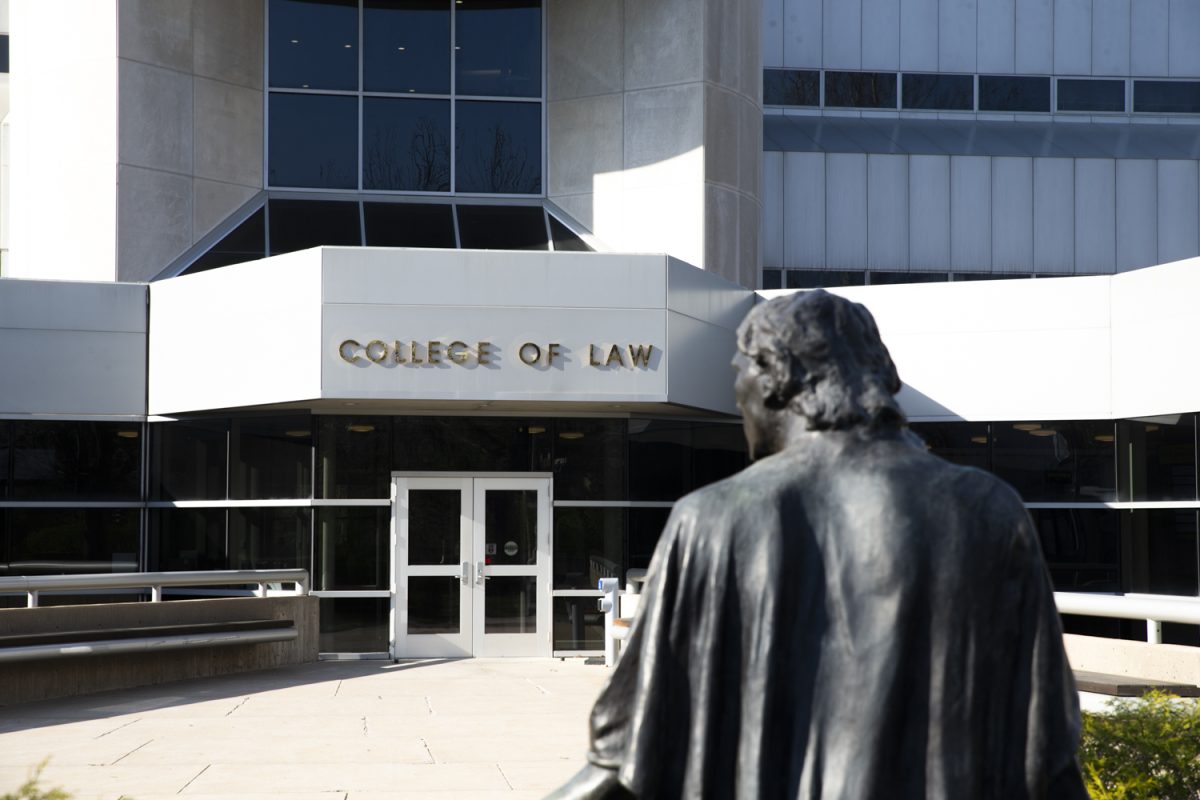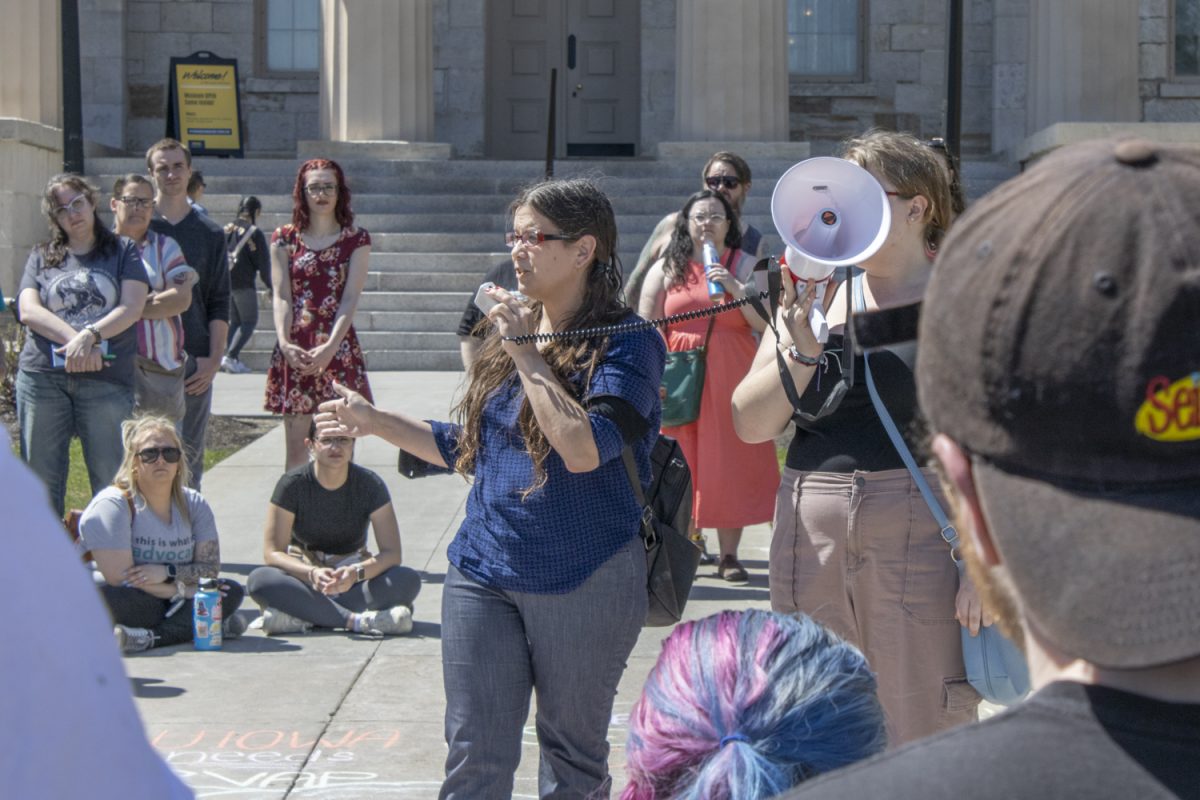"Lives on Hold," a report released today by the Iowa Citizens for Community Improvement and the Oakland Institute, alleges that the Iowa firm AgriSol Energy is responsible in part for human-rights abuses against more than 160,000 refugees in Tanzania — an accusation that the agricultural firm vehemently denies.
AgriSol Energy Tanzania, the Tanzanian arm of AgriSol Energy, is named in the report as being indirectly responsible for the Tanzanian government’s eventual relocation of the former Burundian refugees from the Katumba and Mishamo settlements to make room for a large commercial farm. The chief executive officer of AgriSol Energy is Bruce Rastetter, who sits on the state Board of Regents.
But AgriSol Energy denies having any influence in the Tanzanian government’s decision to relocate the refugees.
Reached in New York City, Henry Akona, AgriSol Tanzania’s director of communications, defended the company and Rastetter.
"AgriSol has absolutely nothing to do with the refugees in Katumba and Mishamo," Akona said. "We were considering those areas a few years ago, but we have suspended any plans because the land is occupied."
The report, researched by the California-based think tank Oakland Institute, contends that the Tanzanian government is burning down the refugees’ homes and crops, violating their freedom of speech, and providing inequitable social services in an effort to force the refugees out of their homes.
Olivia Bueno, the associate director of the International Refugee Rights Initiative, located in New York City, said the issue between the refugees and the Tanzanian government is complicated because of international laws. In regards to the alleged human-rights abuses, she said, there could be a legal challenge in theory, but the government has the right to tell them they need to move.
"On an international-law level, you cannot say they are breaking any laws," Bueno said. "If they need the land for something else, it is not illegal [for the government to move them]."
Today’s report is the latest accusation directed at Rastetter by Iowa Citizens for Community Improvement.
Last month, the group filed a complaint against Rastetter with the Iowa Ethics and Campaign Disclosure Board, contending there was a conflict of interest involving Iowa State University with the Tanzanian deal. The Iowa Citizens for Community Improvement is calling for Rastetter’s dismissal as the regents’ president pro tem. Iowa State walked away from its involvement with AgriSol in February.
The new report attempts to link AgriSol and Rastetter to the alleged human-rights abuses in Tanzania.
"This report shows that Iowa Regent Bruce Rastetter is responsible for ongoing human-rights abuses in Tanzania and is another black eye to the international reputation of the state of Iowa," Ross Grooters, a member of the Iowa Citizens for Community Improvement, said in a release. "Rastetter must resign from the Board of Regents or otherwise be removed from public office immediately."
The Daily Iowan‘s request for an interview with Rastetter was deferred to Akona.
"[AgriSol] is uninvolved with the argument to resettle the refugees and the relocation," Akona said. "We do not condone any human-rights abuses."
According to a timeline in the report, the Tanzanian government expressed its plan to close down old refugee settlements in 2007.
Akona said that AgriSol approached the Tanzanian government in 2008 looking for investment opportunities.
"We went to the [Tanzania Investment Centre] and asked what they needed," Akona said.
The response, he said, was positive. The government wanted outside investment in the country and told AgriSol that production of chicken feed and cooking oil would most benefit its people, Akona said.
At this time AgriSol learned of three properties in western Tanzania that were refugee settlements but would later be available to lease, Akona said. The government told them the settlements would soon be empty after the refugees were resettled in other parts of the country, he said.
Much of the media coverage surrounding AgriSol and the refugee settlements in Tanzania, including "Lives on Hold," contend that the government only began planning for resettlement after AgriSol expressed interest in the refugee areas. Akona says this is not the case.
After its initial interest in 2008, the world economic crisis began, and AgriSol decided to hold off for a couple of years before making any decisions, Akona said. However, he said, it still drew up potential plans for the settlements.
During this time, an AgriSol document described the settlements as "abandoned refugee camps."
But Akona claims the reference was simply a mistake; company officials believed the settlements would be vacated by the time they would revisit.
"We should have done better homework," Akona said.
The report goes on to allege that the Tanzanian government inflicted human-rights abuses against the refugees as they waited to be relocated.
In 2011, after 162,000 refugees were naturalized in a process to become citizens of Tanzania, the report claims the Katumba residents were ordered not to cultivate perennial crops or build new homes or businesses because of a forthcoming resettlement, putting their livelihoods on hold.
For example, one of the claims in the report says people who did not obey the demands saw their crops or homes destroyed.
"Lives are on hold, leaving residents with no other option but to move," said Anuradha Mittal, the executive director of the Oakland Institute and coauthor of the report.
The report also claims the refugees’ freedom of speech has been violated when some were jailed for speaking out and arguing for fair compensation for the resettlement. The refugees have also been living without adequate schools and hospitals for years, the report alleges.
AgriSol officials, however, maintain they were not aware of any human-rights abuses.
"If these [abuses] are happening, we are shocked and disgusted," Akona said on behalf of AgriSol.
The settlements were initially expected to close in 2009 following the relocation and naturalization process of the refugees, according to the report. But with such a large number of refugees, the Tanzanian government reportedly needed more time.
AgriSol has moved on, Akona says. While company officials haven’t ruled out future development in the region, they have recently signed a lease in Kigoma — also in western Tanzania.
The Iowa Citizens for Community Improvement is waiting on the outcome of its ethics complaint against Rastetter. In a June DI article, David Goodner — a member of the group — said the regents won’t officially address the complaint until their next meeting in August. The regents can then throw the complaint out or move forward with an investigation.






